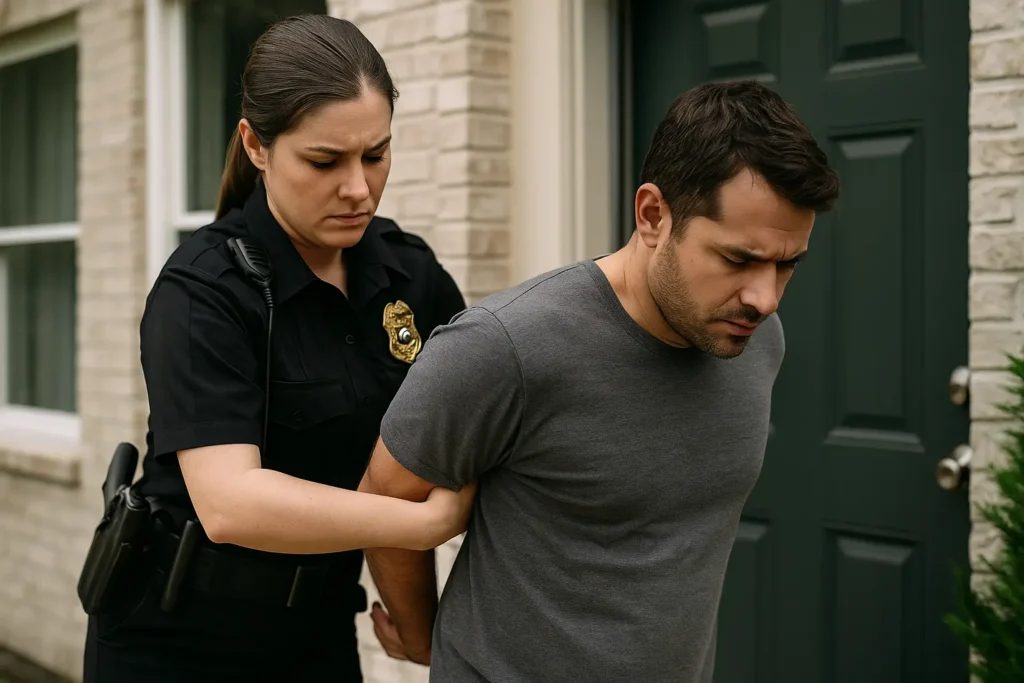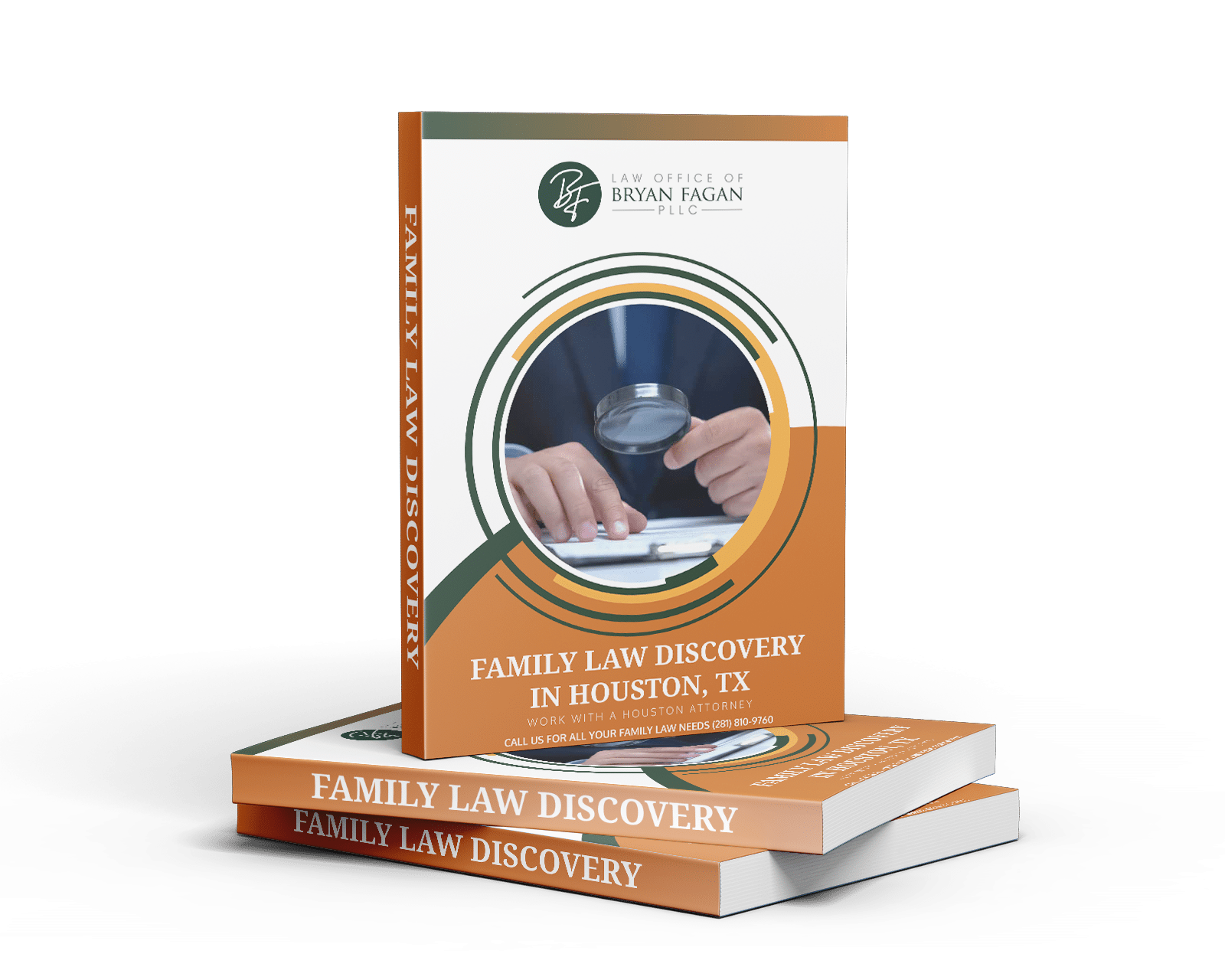
Family violence laws in Texas go far beyond visible injuries or loud arguments. The law recognizes a wide range of abusive behavior—everything from physical harm to threats, intimidation, and emotional abuse between family or household members. These cases move quickly through the courts and carry serious, long-term consequences. Understanding how family violence laws in Texas work can help individuals protect themselves, make informed decisions, and avoid actions that could worsen their legal situation.
What Texas Law Says About Family Violence
Texas law defines family violence broadly. It covers physical harm, threats, and abusive behavior. The person accused doesn’t need to leave bruises or break bones. Threats of harm or emotional abuse can also qualify.
Legal Definition
Under Texas Family Code § 71.004, family violence includes:
- An act by a member of a family or household intended to cause physical harm, injury, or assault
- A threat that puts another person in fear of serious harm
- Abuse of a child in the household
- Dating violence
This law protects not only spouses, but also children, roommates, co-parents, and people in dating relationships.
Types of Family Violence Charges in Texas
Prosecutors file charges based on the facts of the case and the person’s criminal history. The law allows misdemeanor or felony charges depending on how severe the incident was and if similar offenses happened before.
Class C Misdemeanor Assault
This applies when someone causes offensive contact but no visible injury. An example might include slapping, pushing, or spitting. The punishment usually includes fines.
Class A Misdemeanor Assault
This applies when someone causes bodily injury to a family or household member. The penalty includes up to one year in jail and a fine up to $4,000.
Third-Degree Felony Assault
This applies if the accused has a prior conviction for family violence or used choking or strangulation. Penalties include 2 to 10 years in prison and fines up to $10,000.
First-Degree and Second-Degree Felony Assault
In cases involving serious bodily harm or use of a deadly weapon, prosecutors may file more serious charges. These charges come with long prison sentences and no eligibility for early release in many cases.
Protective Orders and Emergency Orders
Victims of family violence can file for protective orders. These legal tools create boundaries and consequences for further harm. Courts issue these orders quickly if they believe someone is in danger.

Types of Protective Orders
- Temporary Ex Parte Order: Lasts up to 20 days. Issued without the abuser present in court.
- Final Protective Order: Can last up to two years or longer in serious cases. Issued after a full hearing.
- Emergency Protective Order: Issued by a criminal judge after an arrest. Often part of the bond conditions.
Protective orders can prohibit contact, require the abuser to leave the home, and remove access to weapons.
What Happens After a Family Violence Arrest
Once law enforcement gets involved, they treat family violence cases as high priority. Officers must make an arrest if they see injuries or have probable cause to believe violence occurred. The state, not the victim, decides whether to press charges.
Police Response
Officers will usually separate the parties, assess injuries, and collect statements. They may call child protective services if children were present. Once they arrest someone, the accused goes to jail and waits for bond conditions.
Prosecution Process
Prosecutors review the case and decide which charges apply. Even if the victim wants to drop the charges, the district attorney often proceeds. The state considers public safety, past reports, and physical evidence.
Long-Term Consequences of a Conviction
A family violence conviction carries consequences long after jail or probation ends. Texas law marks these cases in a permanent way.

Employment and Housing
Many employers conduct background checks. A conviction for assault, even at the misdemeanor level, can block job opportunities. Landlords may deny applications if they see a violent offense.
Gun Rights
Federal and Texas law both restrict firearm ownership for people convicted of family violence. This restriction can last for years, and in some cases, for life.
Custody and Parental Rights
Judges consider family violence when deciding custody arrangements. A conviction may limit visitation or lead to supervised visits. Courts always aim to protect the child’s well-being first.
Defenses Against Family Violence Charges
Not every accusation leads to a conviction. Some people face false or exaggerated claims. Others acted in self-defense or during a mutual fight. The right legal strategy depends on the facts.
Common Defenses Include:
- Self-defense
- Defense of others
- Lack of intent
- False accusations
- No physical harm
Anyone accused should avoid contact with the accuser and follow court orders. Violating bond conditions or protective orders adds separate criminal charges.
What Victims Can Do to Stay Safe
Texas provides support for those facing domestic abuse. Victims can take steps to stay safe and begin recovery.
Call a Shelter or Hotline
Local shelters offer safety, legal aid, and emotional support. The National Domestic Violence Hotline at 800-799-7233 operates 24/7.
Document the Abuse
Keeping records of injuries, threats, texts, or police reports helps build a stronger case. Victims should store copies in a safe place or share them with a trusted person.
File for a Protective Order
Courts move quickly to protect people in danger. Victims can file at their county courthouse, often without a lawyer.
Plan for the Future
Safety planning includes preparing to leave, changing locks, and updating emergency contacts. Many shelters help with these details.
The Role of Counseling and Intervention Programs
Texas courts often order anger management or battering intervention programs after a family violence conviction. These programs aim to reduce repeat offenses and help people recognize harmful behavior.
Battering Intervention and Prevention Program (BIPP)
This state-approved program runs for at least 24 weeks. Participants attend weekly sessions focused on accountability, control issues, and behavior change. Judges often require BIPP for probation eligibility.
Family Violence and Immigration Consequences
Immigrants face additional risks after a family violence arrest. Even legal residents can lose their status or face deportation. Convictions can prevent green card renewals or citizenship.
Victims who are undocumented may still seek help. U visas and VAWA petitions protect immigrant victims of abuse. Speaking to a qualified immigration attorney is critical in these cases.
What to Do If You Face Accusations
Being accused of family violence can change your life instantly. Take the situation seriously and get legal help right away. Don’t contact the accuser. Don’t try to explain your side without a lawyer present. Follow all court orders.
Gather evidence that supports your version of events. Witnesses, text messages, and photos can help build a defense. Act early and stay respectful during every interaction with the court.
Final Thoughts
Family violence laws in Texas act swiftly and carry serious consequences. The courts prioritize victim protection and pursue accountability for offenders. Just one incident can trigger criminal charges, restraining orders, and lasting legal outcomes. Whether you’re seeking protection or facing allegations, understanding family violence laws in Texas gives you the power to make informed decisions. These cases demand immediate attention—because the legal system won’t wait, and neither should you.
FAQs: About Family Violence Laws in Texas
- Family Violence: Protect Yourself and Your Rights in a Texas Divorce
- What Are Family Violence Orders? A Concise Explanation
- How Common is Family Violence in Texas?
- Mental impairments, family violence and how these problems affect child custody cases
- What Does Family Violence Mean in Conjunction With Family Law Cases in Texas
- Family Violence and Family Law in Texas
- Preparing a Final Order in a Divorce Involving Family Violence
- File a Protective Order in Harris County: The Role of Protective Orders in Texas Family Violence Cases
- The Impact of Family Violence on Divorce and Custody
- What a Judge Looks for in a Child Custody Case Involving Family Violence




